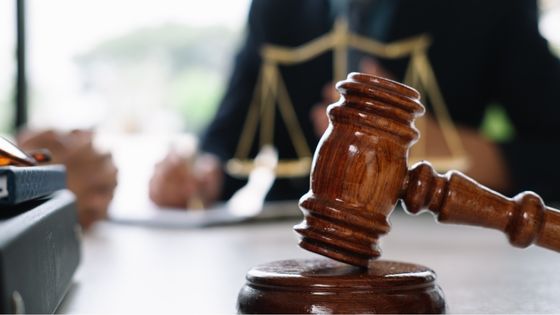Jury selection plays an incredibly important role across criminal trials. However, despite the importance of the jury selection process, it does not get as much attention as it should. Irrespective of how strong the case is, you would probably lose if the jury’s stance is against your client from the beginning.


In this post, you will learn about 5 essential considerations you simply cannot ignore while selecting a jury. So, keep reading and give yourself and your clients the best chance of coming out on top.
1. Identifying potentially biased jurors
Jurors may have preconceived notions and beliefs regarding different cases. For instance, if your case involves elder neglect, the jurors may be biased against the plaintiff. This can work against your client. As a result, it’s imperative that you identify the jurors’ biases and de-select them.
Don’t leave any stone unturned as even the slightest hint of bias may swing the case against the plaintiff. Ask questions to the jurors honestly and encourage them to be honest as they provide their answers. Rate jurors on the basis of how threatening their biases may be in relation to your client.
Last but not least, express your gratitude to jurors if they are honest and transparent. Apart from upholding courtesy, this would also encourage other jurors to speak honestly and transparently.
Talk to a jury selection consultant to understand how you can identify biases among jurors. Jury consultant firms also know the tips and tricks needed to make jurors own up to their biases.
2. Choosing people who are truly interested in the case
Jurors’ biases are not the only things you need to worry about. There are many people who either:
- Don’t care much about the case
- Or are hell-bent on a conviction
You can often identify these people through their body language. That’s why it’s considered a good practice to pick ‘happy’ people. By ‘happy’, we don’t mean people smiling all the time. Instead, it refers to how genuinely interested they are in the case.
Talk to any jury consultant, and you would get to know that the people who should be jurors have the following qualities:
- Unafraid to make eye contact
- Comfortable with themselves
- Raise hands with confidence
- Provide prompt responses through both gestures and words
3. Asking open-ended questions instead of closed-ended questions
Closed-ended jury selection questions are typically easier to answer than open-ended questions, which tend to involve elaboration. However, this aspect of closed-ended questions makes them like double-edged swords. If you make the mistake of asking closed-ended questions, you would be giving the jurors the opportunity to be dishonest.
Open-ended questions, on the other hand, can give you insights into the workings of jurors’ minds. If your client has been accused of crimes in the past, let the jurors know about it. Also, ask them if that would influence their judgment. Consult a jury selection expert to know the most effective types of open-ended questions.
Of course, asking open-ended questions is not a guarantee that the jurors would all be their honest selves. However, they are much better than their closed-ended counterparts in terms of getting a transparent conversation going. Quite simply, by asking open-ended questions, you would be doing yourself and your client a big favor.
4. Speaking with each juror
For modern-day attorneys with multiple cases to handle simultaneously, it can get tedious to speak with jurors individually. However, the tedious and time-consuming nature of this task can actually be quite beneficial in picking the right panel of jurors. Sometimes, lawyers can be quite careless in ignoring jurors and striking them off without valid reasons.
If you do the same thing, it can go on to work against you. Remember, de-selecting jurors is important, but when you de-select them without even talking to them properly, you are ultimately making things difficult for yourself. This might lead to a situation where you are ‘stuck’ with jurors without any possibility of de-selecting them.
Seasoned veterans always make it a point to engage each juror to know more about them as individuals. This leads to valuable insights regarding their thought processes, and how they can affect the case in the favor of or against your client. So, even if you are a lawyer in the nascent stages of your career, talk to every juror comprehensively.
Also read: 4 Various Types Of Lawyers You May Need
5. Tracing every juror’s online footprint
The ubiquity of internet interactions has changed the jury selection procedure in recent years. Selecting the most suitable jurors for cases is no longer only based on each person’s replies to a questionnaire and their comments during voir dire interviews.
When appointing a jury, you must now review each possible juror’s posts on social media to determine the person’s opinion on the issue. This background-checking procedure entails exploring more than merely searching for remarks regarding the case being tried.
You should also look at people’s social media accounts to get a sense of their general viewpoint, lifestyle, and political stance. A potential juror, for example, who has made extremely strong online views about gun control may be unable to be impartial during a trial involving a potential gun crime. Quite simply, you cannot select a jury nowadays without online jury research.
Conclusion
Voir dire interviews can be complicated and incredibly challenging for new lawyers. The best way to approach them would be to treat them like talk shows. Every established talk show host takes time to get to know the guests better. In the same way, you have to be patient and persuasive in your approach.
If you can genuinely make the jurors feel that you are interested in listening to what they have to say, they are bound to talk sooner or later. In the long run, this would help you to identify the jurors who may go against your client during the trial. At the same time, it would allow you to recognize the ones who might help you win your case. So, take your time and get to know the jurors better.
















